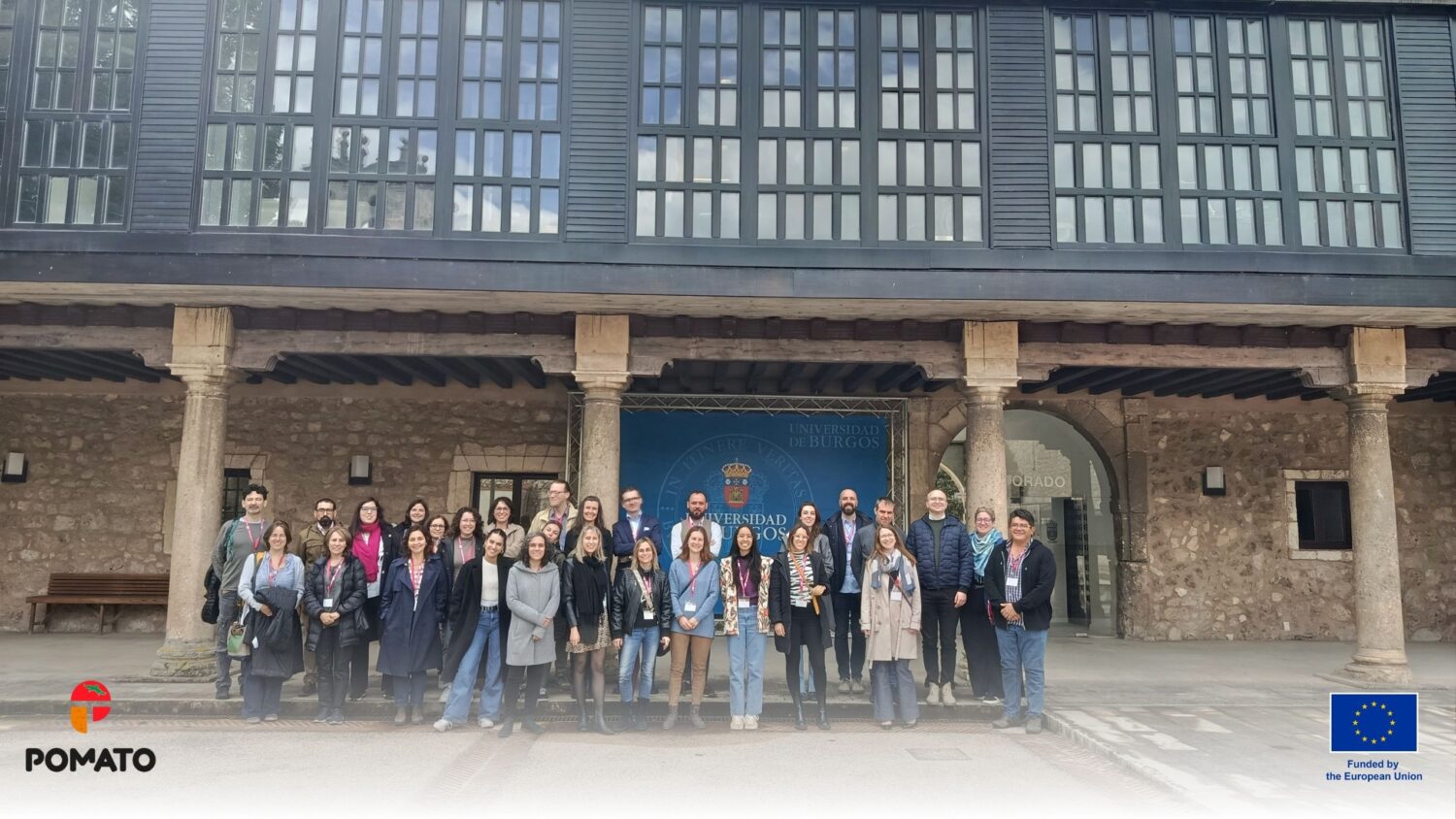
Burgos, Spain – May 2025 – The POMATO project (Effective management strategies to tackle Clavibacter sepedonicus and Ralstonia solanacearum outbreaks on POtato and toMATO crops) has officially launched to address the growing threat of bacterial diseases affecting vital horticultural crops. Funded by the European Union under the Horizon Europe programme, with a total budget of €6.5 million, this four-year initiative aims to minimize crop losses and enhance sustainability across agricultural systems in Europe and Latin America.
The project officially kicked off with a two-day meeting held on May 13–14, 2025, hosted by the coordinating institution, Universidad de Burgos (UBU). The event brought together the full POMATO consortium to align on goals and launch collaborative activities.
Led by UBU, the POMATO consortium includes 16 partners: universities, research institutes, SMEs, agrochemical companies, and farmers from Europe and Latin America. This diverse collaboration reflects the urgent need for integrated, sustainable crop protection strategies in the face of increasing pathogen pressure, climate variability, and tighter regulations on chemical pesticide use.
POMATO specifically targets Clavibacter sepedonicus and Ralstonia solanacearum, two of the most destructive bacterial pathogens threatening solanaceous crops. These EPPO A2-listed quarantine pests pose serious phytosanitary and economic risks within the EU and globally. In response, the project will deliver integrated pest management (IPM) solutions that are field-tested, natural, and environmentally sound. These will combine advanced early detection technologies, biological control methods, and digital decision-support tools. A safety and sustainability assessment (SSbD Framework) of POMATO’s solutions will be carried out since their development phase making them safer and more sustainable.
Field trials and validation activities will take place in both greenhouses and naturally infected fields across Europe and Latin America, ensuring the solutions are scalable and adaptable to diverse climatic and agricultural conditions. Alongside technical innovations, the project will assess socio-economic impacts and propose policy recommendations aligned with the SSbD Framework.
Key innovations of the POMATO project include:
- Portable diagnostic and sensor technologies with over 90% detection accuracy
- Nature-based control agents, including bio-control coatings and chemoperception-disrupting compounds
- A multi-actor engagement model involving farmers, researchers, industry, and policy stakeholders
- Integration of solutions into practical, sustainable IPM strategies
Running from May 1, 2025, to April 30, 2029, the POMATO project will support a transformation in how bacterial diseases in potato and tomato crops are managed. It contributes directly to the EU’s Green Deal and Farm to Fork strategy, while fostering international cooperation and strengthening Europe’s food security and environmental resilience.
POMATO Project partners:
Universidad de Burgos | Plant Breeding and Acclimatisation Institute | Agrosavia | University of San Francisco of Quito | IRIS Technology Solutions | Idener research & development | Wageningen University & Research | Fundación tecnológica advantx | Centre for Plant Biotechnology and Genomics (UPM-INIA/CSIC) | Institut Jozef Stefan | Chemia | Fertico | InoSens | Polish Seed Trade Association | European Potato Trade Association | Associação para a Inovação no Alimento Sustentável
For more information, please reach out to:
| Project Coordination: | Communication: | |
| Raquel Hernández Ruiz | Nevena Živančev | Maja Sremački |
| rhruiz@ubu.es | zivancev@inosens.rs | sremacki@inosens.rs |
